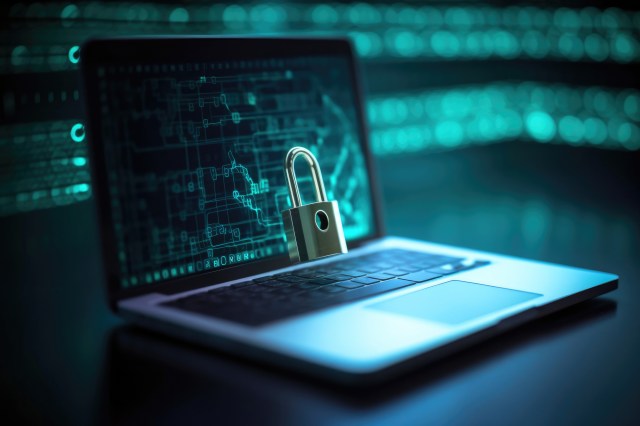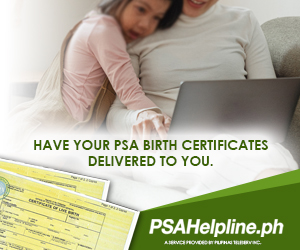In today’s digitally connected world, where laptops have become an integral part of daily life, safeguarding personal laptops is no longer a luxury but a necessity. Whether it’s personal photos, critical work documents, or financial information, the data stored is often invaluable. And understanding the common risks and threats is the first step toward protection.
This article will guide you through best practices for daily use, ensuring your laptop remains secure and functions efficiently.
- Physical Protection
As portable devices, laptops are often subjected to various hazards that could potentially damage or compromise their functionality. Therefore, it’s crucial to prioritize their physical protection.
- Maintain Screen And Keyboard
Your laptop’s screen is one of the most vulnerable parts, often susceptible to smudges and scratches. You can use a soft, lint-free cloth to prevent such issues. But avoid using harsh chemicals since they can damage the screen.
The keyboard also requires attention. Dust and debris can build up between the keys, leading to unresponsive or sticky keys. Cleaning the keyboard with a gentle brush or compressed air can help ensure optimal functionality. And for additional protection, consider using a keyboard cover.
- Treat Your Laptop With Care
Proper handling of the laptop is crucial to maintain it. As such, always ensure the laptop is placed on a stable surface. Also, avoid eating or drinking near the device to prevent accidental spills.
You can also add an extra layer of defense to your laptop while on the move by investing in a high-quality laptop case or sleeve. With the right laptop sleeves design, you can ensure your device stays protected from scratches and bumps, maintaining its pristine condition.
Ensure also to handle accessories with care, especially when plugging and unplugging them from your laptop. Furthermore, using accessories compatible with your laptop can help prevent unnecessary wear and tear. With careful handling and a mindful selection of accessories, you can keep your laptop in prime condition.
By paying attention to the screen, keyboard, and overall handling, you can greatly extend its lifespan.

- Software Protection
The protection of your laptop goes beyond safeguarding it against bumps or scratches. From regular system updates to employing antivirus measures, these practices form the first line of defense against malware, viruses, and other malicious activities.
- Install Regular Updates
Keeping the operating system (OS) updated is a critical part of laptop defense. These updates often include vital security enhancements and bug fixes, and failing to install them can leave your computer susceptible to various vulnerabilities.
To streamline this process, many systems offer options to enable automatic updates. Simply navigating to the settings and activating this feature can ensure your laptop always has the latest security measures.
- Employ Antivirus Measures
The significance of employing antivirus software cannot be overstated. This software acts as a shield against malware, viruses, and other malicious threats that could compromise your laptop. However, it’s not merely about having an antivirus installed but also about engaging in secure browsing practices. Opting for known and trustworthy websites, being cautious with downloads, and even utilizing browser extensions that focus on security can fortify your laptop’s defense.
With these approaches, you can effectively safeguard your laptop and personal files against cyber attacks.
- Personal Information Protection
Protecting your laptop also includes practices to secure it from unauthorized access, which is crucial for personal data protection.
- Implement Strong Passwords
Creating a robust and unique password for your laptop is essential. As much as possible, avoid using easily guessable information or common passwords. With a strong password, you can significantly reduce the risk of unauthorized access.
A mix of upper and lowercase letters, numbers, and special symbols can make a password difficult to crack. But if remembering multiple complex passwords is challenging, consider using password management tools to securely store various passwords and even generate strong ones for you.
- Use Biometric Authentication
If your laptop has a built-in fingerprint scanner or facial recognition feature, consider enabling it. Biometric authentication offers a convenient and secure way to unlock your laptop, ensuring that only authorized individuals can access it.
- Use Secure Wi-Fi Connections
A secure Wi-Fi connection is equally essential. Connecting to unknown or public networks can put your laptop and personal information at risk. As such, it’s best to stick to known and trusted networks. If you need to connect to public Wi-Fi, use a VPN (Virtual Private Network), which can encrypt your data and adds a layer of security, even on less secure networks.
By implementing measures to secure your laptop from unauthorized access, you can prevent identity theft, financial fraud, and other security breaches.
- Energy Saving Practices
Taking care of your laptop isn’t only about protecting it from physical or virtual harm; it also involves using it responsibly to save energy. Small, daily habits can make a big difference not only for the laptop’s lifespan but also for the environment.
Turning off the laptop when it’s not in use is a simple step. It helps in conserving energy and also gives the system a much-needed rest. If you’re stepping away for a short while, many laptops offer energy-saving modes or sleep functions, which help reduce power usage when the laptop isn’t in active use but allow for a quick restart.
Conclusion
Protecting your laptop extends beyond security measures since it includes responsible handling and energy-saving practices. Embracing the best practices above helps ensure both the longevity of your device and the safety of your personal information. It’s a comprehensive approach that provides peace of mind, efficiency, and environmental stewardship.
 Copyright protected by Digiprove © 2023
Copyright protected by Digiprove © 2023








